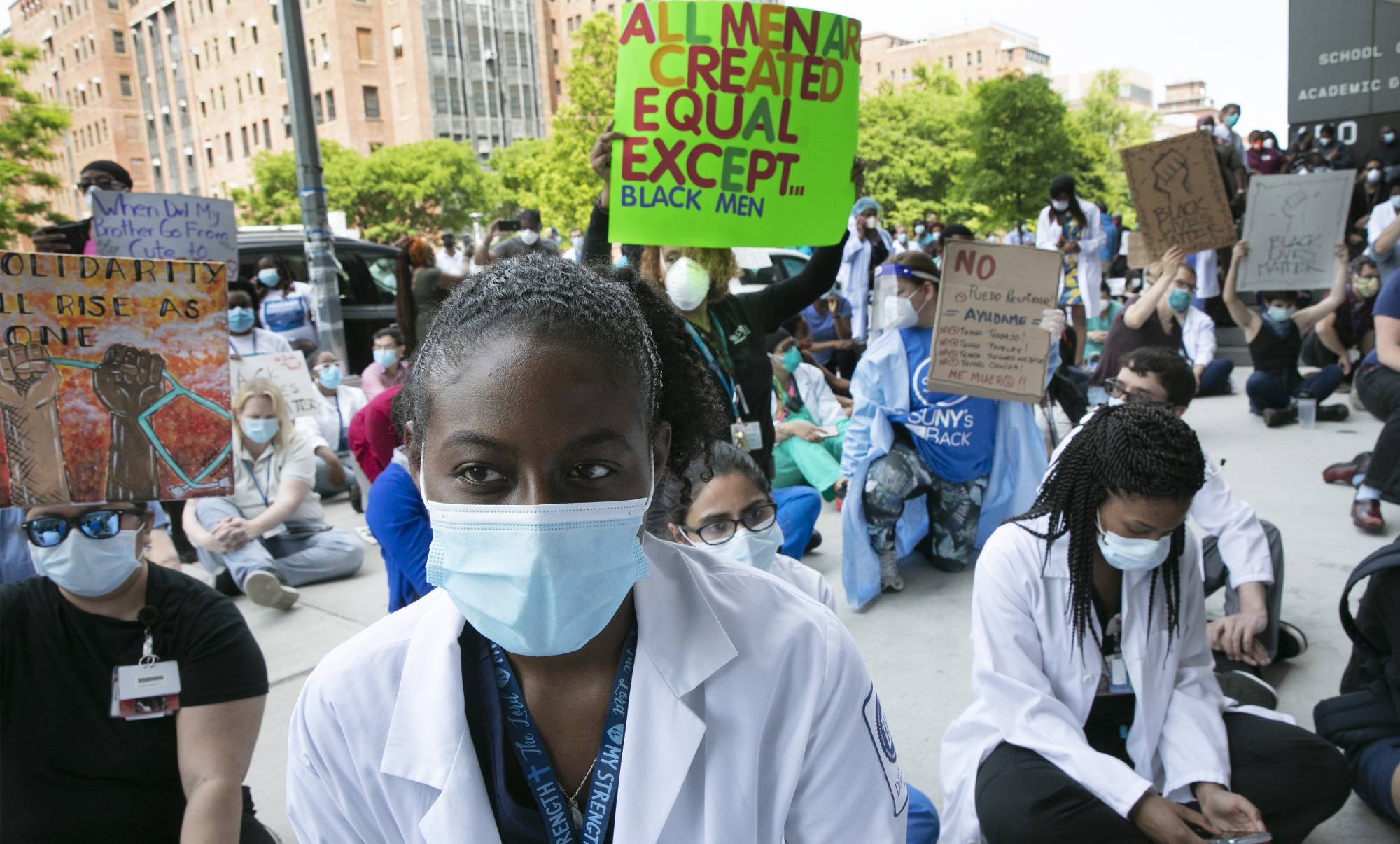As a hospital physician in New York City, I see the clinical impact of COVID-19 daily: failed lungs, inflamed hearts and blocked blood vessels. But, in the United States, the coronavirus is also a symptom of a more pervasive and enduring malady: a culture and political economy that are deeply broken and dangerously unequal, and a country that has not come to terms with its legacy of racism.
The ongoing pandemic isn’t the first time the U.S. has had to confront its collective pathologies. In 1968, the social and political tumult then gripping the country seemed to deepen. That spring, the country was reeling from divisions over the Vietnam War. Nonviolent civil-rights protests had given way to rioting in the country’s cities that mirrors our current moment. And the economic depredations driving the civil-rights movement became more obvious, as sanitation workers in Memphis went on strike for safer conditions (an episode with clear parallels today).
That March, U.S. Sen. Robert F. Kennedy, running for president, delivered his second campaign address. His words ring no less true today. “Even if we act to erase material poverty, there is another greater task,” he said to an overflow crowd at the University of Kansas’s Allen Fieldhouse. “It is to confront the poverty of satisfaction – purpose and dignity – that afflicts us all. Too much and for too long, we seemed to have surrendered personal excellence and community values in the mere accumulation of material things.”

















With your current subscription plan you can comment on stories. However, before writing your first comment, please create a display name in the Profile section of your subscriber account page.